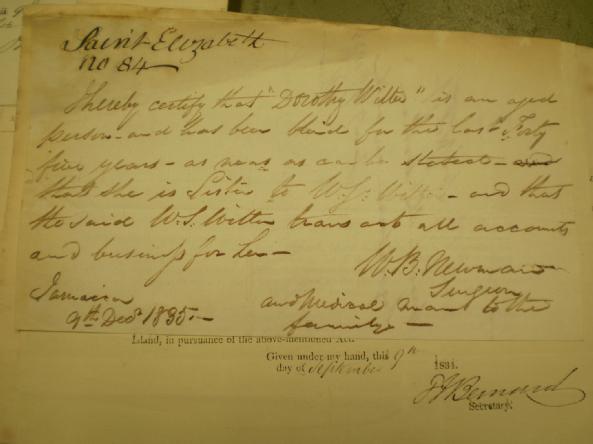Kinship Ties, Consanguinity and Property
St. Elizabeth was far away from other main economically productive parishes, but the inhabitants kept close relationships in neighbouring Manchester and Westmoreland, which helped to close ranks and cement the types of kinship relationships and friendships that developed in the parish. Socially, economically, politically and spiritually, the inhabitants lived by the teachings of the society, social groups and ancestors. This applied whether they were white or black, or whether those teachings were morally acceptable or not.
The women of colour underplayed their black heritage and stressed the white, in order to survive the slavery system of the period.3 Family ties and links were important to people of colour, as, in some cases, they had no known ancestors. They ‘created a far ranging and complex network of interrelated, highly visible families, increasingly linked through inheritance and marriage’. 4
developing their own kinship smorgasbord of family and friends in inheritance, business and family relationships.

3 Lucille Mathurin Mair, A Historical Study of Women in Jamaica 1655-1844. p86.
4 Trevor Burnard, 'A Tangled Cousinry? Associational Networks of the Maryland Elite 1691-1776', (44) p1.
